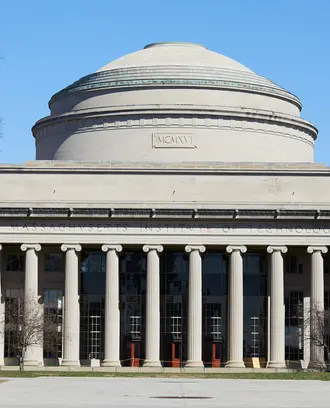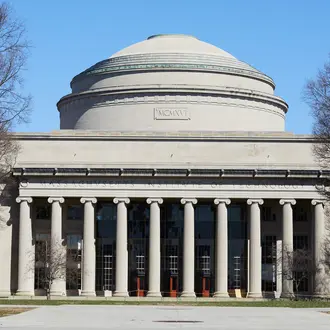Kylie Wagner is Head of Franchise Marketing & Customer Engagement at Takeda and a member of the MIT EMBA Class of 2023.
With an undergraduate degree in business, what were you hoping to accomplish getting your MBA?
Pursuing an Executive MBA at MIT Sloan helped me think differently. I can diagnose problems quicker, define crisp strategies, and deliver results with high-performing teams. With a refined leadership approach, I can implement change faster, which helped me launch a new franchise business model for rare diseases.
Why did you consider the MIT Executive MBA, among other options?
I was looking for a program that could elevate my skills to think like a CEO, and MIT offered a unique program focused on Action Learning— a teaching method where students take what they learn in the classroom and apply it to a real business challenge. Classes built off one another and professors understood surrounding classes to highlight learnings that maximized your experience.
What drives you as a leader and person?
Kylie Wagner, EMBA '23
Building teams, challenging the status quo, and developing leaders to help shape the direction of an organization is what drives me to advance to the executive level. I applied to MIT during the pandemic because the world was changing, and I knew I needed to expand my tools to tackle what’s ahead to compete at the executive level. The EMBA journey has elevated my thinking to tackle business challenges. The frameworks I learned help me diagnosis problems faster, build sharper enterprise strategies and define organizations.
My career was inspired by my father, a veteran who struggles with mental health. I was motivated to learn about his disease and the medicines that would help him feel better, ultimately leading me to pursue a career in the life sciences industry. During my 19 years at Takeda, I’ve earned increasing levels of responsibility. I’ve found fulfillment in coaching and leading others to achieve their goals and finding ways to help the organization tackle real-world challenges to provide greater value to patients and our company. I’ve led and inspired teams to think differently by challenging assumptions to overcome barriers and find new solutions for patients. For example, I leveraged my personal experience to lead a team with empathy to build a new digital ecosystem for patients with depression, which inspired other industry partners – biopharmaceutical companies, payers, and pharmacies to rethink how they supported people with mental health conditions. My personal mission is to give back to people like my father, which is why I chose a career in the life sciences industry.
*For those struggling with mental health, please remember that you are not alone, and help is there. Suicide and Crisis Lifeline is accessible nationwide 24/7; call or text 988.
What elements of our Action Learning frameworks did you find yourself implementing right away at work?
As a Head of Marketing, I built a new organization, team, capabilities, and operating model across multiple brands. I leveraged my financial and operational understanding to build a new team – which didn’t exist at Takeda – to make sure I wasn’t duplicating resources and instead found efficiencies to build a sustainable, high-impact model. Next, I used the three lenses and A3 frameworks to define the problem, create a clear strategy, and set up an organizational structure with a new operating model that influenced stakeholder decision-making within a new workflow. I also considered the market opportunity to create a competitive advantage with new digital capabilities and channels. Combining these frameworks, with a focus on building trust, helped me to establish the team quickly and set them up for successful product launches.
How did Executive Labs impact your experience?
The goal was to solve a cross-border challenge at a top African bank in Mozambique and South Africa. Selecting an excursion outside of the US that focused on a new industry, culture, and economic landscape forced me to trust and test my new skills as a senior leader. Plus, I worked with a dynamic team that proved the power of this program. When you build a team of MIT EMBA students, the speed-to-problem assessment, diagnosis, and solutions are endless and on-point. This experience gave me confidence in the leader I’d become with the knowledge to tackle organizational challenges and define new opportunities regardless of industry or location. My ability to harness this power to drive impact in the healthcare industry to help people and be a voice for change is a challenge I gladly accept.
What was it like being promoted in your organization while actively being an MIT EMBA student?
Busy! Luckily, I had a solid plan to balance school and work before the promotion. It was an excellent opportunity to apply what I was learning quickly. I had just finished a leadership class, so when building a new team, I reminded myself of those lessons. Slow down to speed up. Slow down to listen, learn, and teach others how to solve problems as they arise instead of solving everything for them. Taking this approach helped us move quicker when things got busier because they had the skills to navigate challenges and ultimately drive results.
What piece of advice would you give to a prospective student?
Take a chance on yourself and GO FOR IT! 😊 This experience was the best professional gift I’ve ever given myself. I’m forever changed and now prepared as a principled, innovative leader ready to improve the world.



